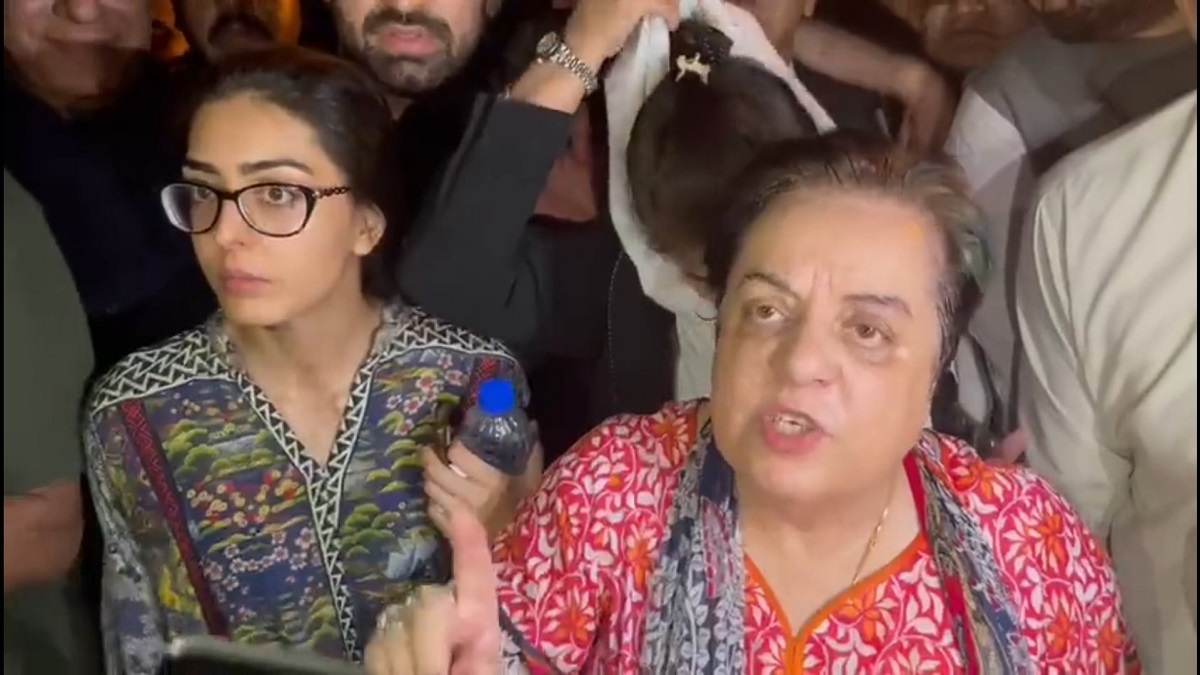In a recent series of perplexing political events marked by arrests, releases, and rearrests, leaders of the Pakistan Tehreek-e-Insaf (PTI) have been caught in a revolving door, leaving both the public and pundits bewildered. The relentless cycle of arrests and rearrests seems to have broken the spirits of PTI leaders, prompting them to quit the party and even withdraw from active politics, citing personal and health concerns.
One prominent figure affected by this tumultuous situation is senior PTI leader Dr. Shireen Mazari, who announced her departure from the party and politics in Islamabad on Tuesday evening. During her 12-day incarceration, Dr. Mazari expressed that her health and her daughter Imaan Mazari had suffered significantly. She emphasized that her family and children were her top priority and expressed condemnation of the events that occurred on May 9 and 10, condemning all forms of disorder.
Another significant departure from the PTI came from former Punjab information minister Fayyazul Hasan Chohan, who resigned from the party in a fiery news conference. Chohan criticized what he perceived as the party’s increasing “policy of violence” and expressed disappointment with party chief Imran Khan for not advising against the use of force in politics. While Chohan declared his departure from the PTI, he affirmed his commitment to remaining in politics, leaving the door open for potential involvement with another political party.
Additionally, PTI Senior Vice Chairman Shah Mahmood Qureshi, along with PTI spokesperson Musarrat Jamshed Cheema and her husband Jamshed Cheema, were rearrested immediately after being released from Adiala Jail in Rawalpindi. Despite rumors of his departure from the party, Qureshi unequivocally stated that he was and would remain a part of the PTI.
The wave of resignations and arrests has led to speculation that the PTI is being factionalized, similar to the overnight conversion of the Pakistan Muslim League-Nawaz (PML-N) into the PML-Q at the turn of the century. Political experts believe that these developments are the result of pressure exerted by powerful quarters, possibly aiming to weaken the PTI as a potent political force. However, the long-term survival of the PTI remains uncertain, as political parties have endured similar challenges in the past.
The unexpected chain of events unfolded shortly after a series of attacks on key civilian and military installations on May 9, which followed the arrest of a former prime minister on corruption charges. The ensuing protests resulted in the arrest of several PTI leaders and supporters, further escalating tensions. As the crackdown continued, the civil and military leadership vowed to hold those responsible for the attacks accountable under the Army Act and Official Secrets Act.
PTI Chairman Imran Khan has described these departures as “forced divorces” at “gunpoint” and expressed concern for the workers and especially the women within the party. However, he remains steadfast in his belief that parties do not die abruptly and are instead eroded over time, likening it to the erosion of the ruling coalition, the Pakistan Democratic Movement (PDM).
The recent detention of PTI leaders shortly after their release on bail indicates a situation reminiscent of the period preceding the 2018 elections when leaders of the PML-N, including Nawaz Sharif and Maryam Nawaz, were incarcerated.
As the political landscape in Pakistan undergoes significant shifts, the PTI faces the challenge of regaining stability and consolidating its position amidst arrests, resignations, and a changing political landscape. The outcome of these developments will ultimately shape the future of the party and the broader political environment in the country.



























